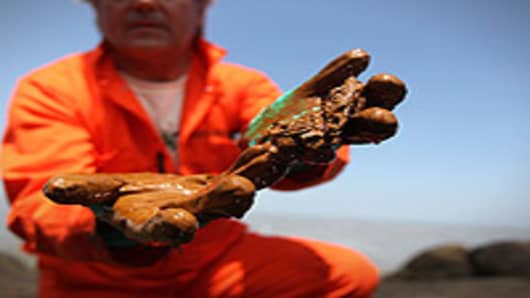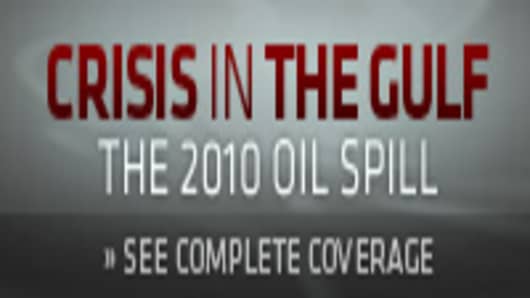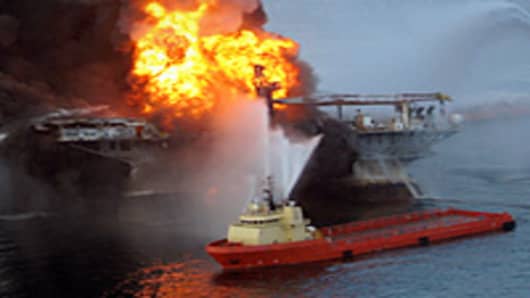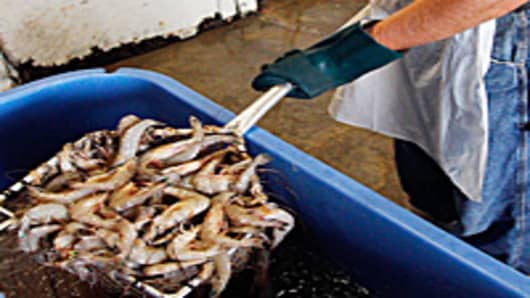As BP continues to struggle to plug the leak at the bottom of the sea, the president tries to convince the country that he is on top of the crisis, and the first oil laps the coasts of previously untouched states, Americans far from the gulf are feeling touched by the disaster.
A sampling:
WYOMING
An ‘Oil City’ Fears for Its Future
CASPER, Wyo. — The lobby of the elegant old Casper Petroleum Club is filled with suggestions of its pro-oil ethos: a sign listing current crude and natural gas prices; a wall of plaques recognizing local companies in the business; and dozens of photographs of beaming engineers and executives who have served on the board of the private club over the years.
But in recent weeks, some club members’ smiles have been replaced by more fraught expressions as worries have grown not only about the oil spill in the Gulf of Mexico, but also about the potential blowback to Casper’s No. 1 industry.
“Honestly, the first concern is the problem it is causing the Gulf Coast, because a lot of us have spent time down there,” said Jimmy E. Goolsby, a geologist who lived in Texas before decamping to Casper some 35 years ago.
“But secondary to us, and very important to all of us, is what impact it’s going to have on the oil and gas industry in the U.S.,” Mr. Goolsby said. “Is it going to be what Three Mile Island was to nuclear?”
In Casper, a city of 52,000, oil and natural gas production and refining are as central to the lives of many residents as pick-up trucks and big sky. That concern spreads all the way from the white-tablecloth confines of the petroleum club to the white-bibbed customers at the Rialto Barber Shop.
Ed Heatherington, who wields the razor beneath the watchful gaze of a stuffed pronghorn antelope at the Rialto, was measured in his response. “It’s a shame it happened,” he said. “But we’re not living in an accident-free world.”
But some of Mr. Heatherington’s patrons were less forgiving Thursday morning as they chided President Obama for what they saw as a slow, haphazard response, as well as for his remarks Wednesday that he intended to roll back tax credits for the oil industry.
“He’s just on another campaign trip,” said Dee Beardsley, a 81-year-old retiree who worked for years as an operations manager in the energy industry. “They’re brain dead.”
That Mr. Obama would be unpopular in this red state stronghold — this is Dick Cheney’s hometown, after all — is not surprising. But BP, the London-based oil giant, also drew an angry response from some local residents.
“We kicked the British out of here 200 years ago,” said Ken Melder, a drilling consultant from Glenrock, Wyo., in a neighboring county. “And we ought to do it again.”
Oil and gas have long been a part of life in Wyoming, where the first oil well was drilled in 1884, six years before the territory joined the union. Casper is no exception; sometimes known as “the Oil City,” it has a refinery on one edge of town, with gigantic oil reserve tanks on the other. Rail tracks, where piping and tanker cars are a constant presence, run through the center of town, not far from one of its tallest structures — the six-story Petroleum Building.
Most of those in the oil and gas business here are not big, multinational companies, Mr. Goolsby said. “Most people here are like farmers: they just produce product,” he said, meaning oil and natural gas. “They don’t have pipelines. They don’t have refineries. They don’t have outlets. They just produce.”






